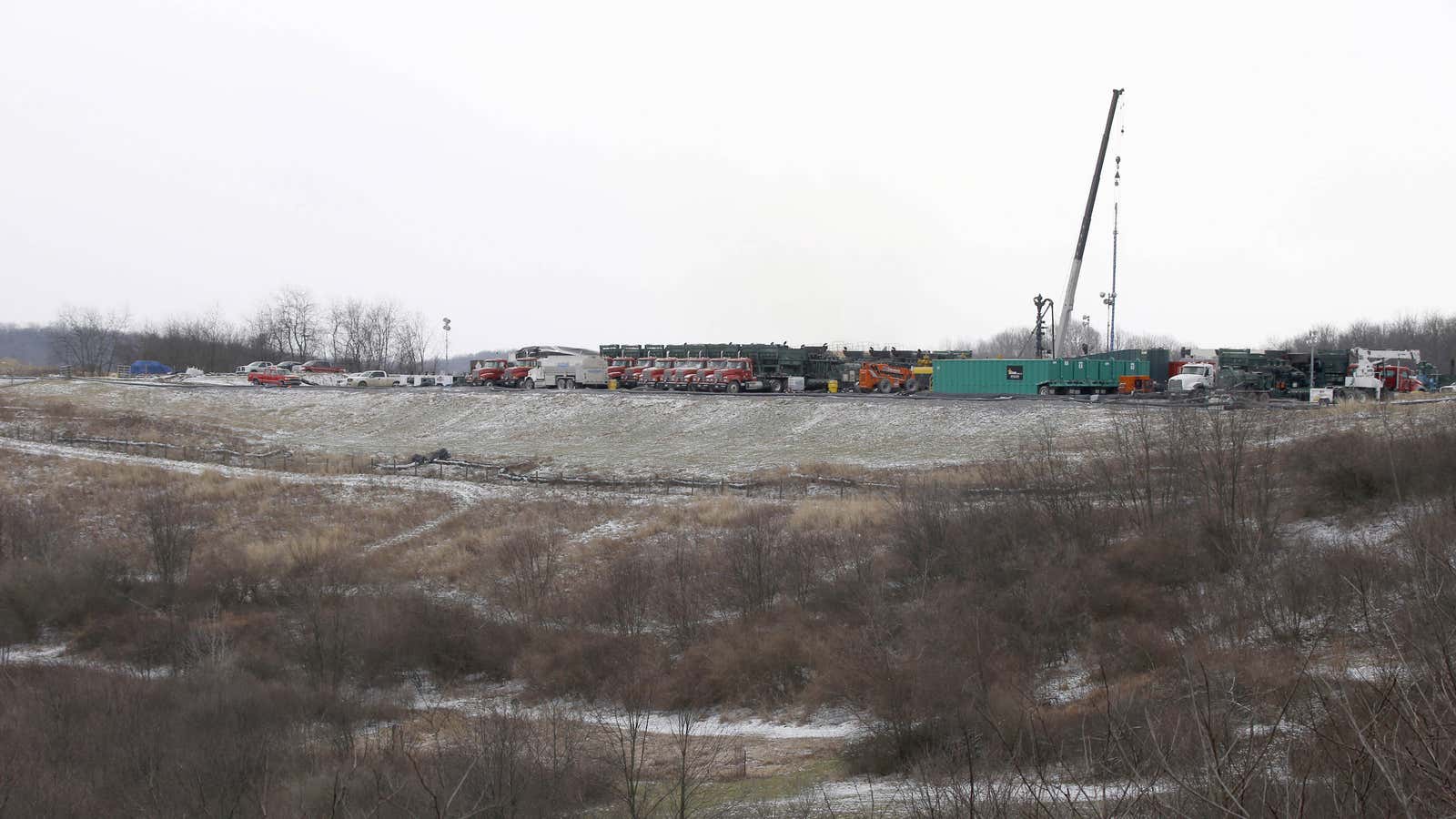Despite their constant squabbles, there is one area of industry where America and China are tentatively making friends.
That is the field of shale energy, where the controversial drilling technology known as “fracking” is used to pump water into shale rocks to remove oil and gas.
Because the US has a huge amount of untapped shale reserves and leads the world in extraction technology, it may be the on the verge of total energy independence.
China also has great prospects in shale, with gas reserves that may even be bigger than the US’s and Canada’s combined. But it lacks the expertise to turn its reserves into energy. So Chinese companies are chasing investments (paywall) in America’s shale industry to access technology that can help it turn its reserves into energy.
Chinese oil giant CNOOC has spent billions investing in shale projects operated by America’s Chesapeake Energy. And more Chinese companies are marshalling cheap loans from Beijing government-backed banks to strike similar partnerships, according to Bloomberg.
China definitely lacks America’s shale extraction expertise, says Neil Beveridge, a Hong Kong-based analyst at research house Sanford Bernstein. He adds that Chinese companies are pursuing investments in US projects to “access technology and then apply those technologies to China.”
That idea is not guaranteed to work. ”As investors in projects, Chinese companies can attend meetings, see work programs and budgets, and generally access a lot of data,” says Beveridge. But what Chinese companies cannot glean from meetings is the engineering experience that is needed to capably extract energy from shale and that the US has built up over the last two decades.
Fracking is “as much about technique as technology,” Beveridge adds. ”It’s not all about the equipment you use. You need experience. Different rock formations present unique challenges.”
China’s shale dream also does not really present the US with major political concerns. Because China faces huge challenges to meet its own energy needs, it is unlikely to produce so much shale oil and gas that it can become a major energy exporter and therefore influence global prices in a way designed to destabilize the US.
Julian Lee, senior analyst at the Centre for Global Energy Studies in London, does not believe China has broad geopolitical goals when it comes to shale but is primarily looking to meet its own energy needs. ”China is very dependent at the moment on imported energy and feels very vulnerable,” he says. “They are focussed on meeting domestic demand.”




